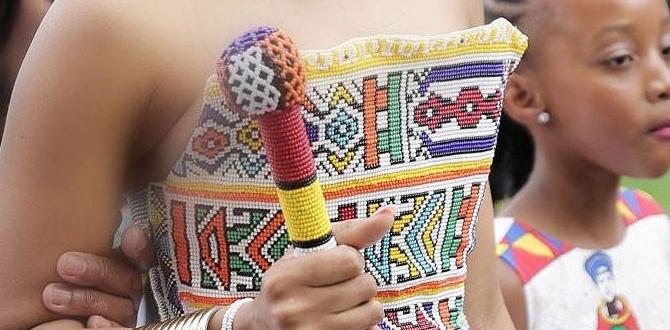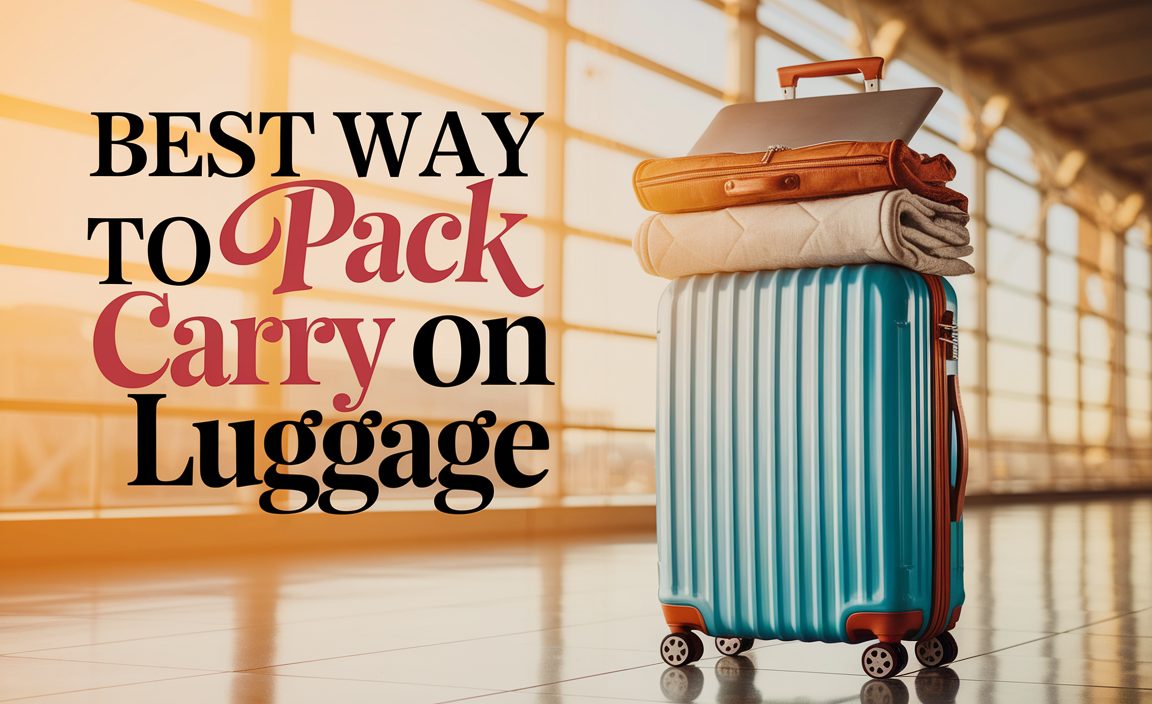Traveling solo in Beirut as a woman is an empowering adventure! This guide offers essential safety, culture, and practical tips to ensure a smooth, enjoyable, and memorable trip, letting you explore Lebanon’s vibrant capital with confidence and ease.
Beirut, a city that has rebuilt itself time and again, offers an exhilarating blend of ancient history and modern dynamism. For solo female travelers, the prospect of exploring such a rich and complex destination can sometimes feel daunting. You might wonder about safety, cultural norms, or even the best way to get around independently. But fear not!
Beirut is a city brimming with warm hospitality and incredible experiences waiting to be discovered. Journey Essentials is here to equip you with the knowledge and confidence to embark on your solo adventure in this captivating Lebanese capital. We’ll break down everything you need to know, from staying safe and comfortable to immersing yourself in the local culture. Get ready to unlock the magic of Beirut, your way!
Why Beirut for Solo Female Travelers?
Beirut is a city that surprises and delights. Its resilience, vibrant energy, and the genuine warmth of its people make it an increasingly attractive destination for solo female travelers. Beyond the headlines, Beirut offers a unique cultural tapestry, delicious food, and historical sites that rival any in the region.
For the adventurous spirit, it presents an opportunity to step outside the conventional tourist path and connect with a culture that values hospitality above all else. The city is a testament to human spirit, constantly reinventing itself with a captivating blend of old and new, making it an incredibly rewarding place to explore on your own terms.
Safety First: Navigating Beirut with Confidence
Your safety is paramount when traveling solo. While Beirut is generally safe for tourists, especially in popular areas, being prepared and aware is key to a stress-free experience. Lebanese culture is known for its friendliness, and most interactions will be pleasant. However, like any major city, a little caution goes a long way.
General Safety Practices
- Trust Your Instincts: If a situation feels uncomfortable, remove yourself from it. Your intuition is your best guide.
- Stay Connected: Keep your phone charged and consider purchasing a local SIM card for reliable access to calls and data. Inform a trusted contact back home about your itinerary.
- Be Aware of Your Surroundings: Pay attention to what’s happening around you, especially in crowded places or when withdrawing money from ATMs.
- Dress Modestly: While Beirut is relatively liberal compared to some other Middle Eastern cities, dressing modestly shows respect for the local culture and can help you blend in more easily. This means covering your shoulders and knees, especially when visiting religious sites.
- Learn Basic Arabic Phrases: Knowing a few basic greetings and phrases like “Shukran” (thank you) and “Afwan” (excuse me/you’re welcome) can be very helpful and appreciated by locals.
- Hydration is Key: The Lebanese climate can be warm, so always carry a water bottle to stay hydrated.
Transportation Safety
Getting around Beirut can be an adventure in itself. Understanding your options and how to use them safely is crucial.
- Taxis/Ride-Sharing Apps: Use reputable ride-sharing apps like Uber (which operates in Beirut) or Careem. If hailing a taxi, agree on the fare before starting your journey or ensure the meter is used. Note the driver’s details if possible. Look for official taxi signs.
- Service Taxis: These are shared taxis that follow fixed routes. They are very affordable but can be a bit bewildering for first-timers. If you choose to use them, be prepared for stops and potential crowding.
- Walking: Many areas of Beirut are very walkable and enjoyable to explore on foot, especially in neighborhoods like Hamra, Gemmayzeh, and Mar Mikhael. Be mindful of traffic, as it can be chaotic.
- Avoid Night Travel Alone: While many areas are lively at night, it’s generally advisable to use pre-booked transport or ride-sharing apps if you’re out late and traveling alone.
Scams to Be Aware Of
While not rampant, it’s always good to be aware of potential tourist scams anywhere you travel:
- Overpriced Souvenirs: Bargain respectfully, but be firm if prices seem exorbitant. Research typical prices beforehand if possible.
- “Friendly” Guides: Be cautious of overly eager strangers offering unsolicited tours or assistance; they may expect payment later.
- Currency Exchange: Always use official exchange bureaus or reputable banks. Banks will provide an official receipt.
Cultural Etiquette and Respect
Understanding local customs will enrich your experience and ensure you interact respectfully with the people of Beirut. Lebanon is a diverse country, and Beirut reflects this, with a blend of traditions and modern influences.
Greetings and Social Interactions
- Greetings: A friendly smile and a simple “Marhaba” (hello) goes a long way. Handshakes are common between men and women, but it’s polite to wait for a woman to extend her hand first.
- Hospitality: Lebanese people are renowned for their hospitality. If invited into someone’s home, it’s a great honor. Bring a small gift, like pastries or flowers, if possible.
- Modesty: As mentioned, modest dress is appreciated, especially outside of beach resorts or very tourist-oriented areas. This applies to both men and women.
- Public Displays of Affection: While not as strict as some conservative countries, public displays of affection are generally kept to a minimum.
- Photography: Always ask permission before taking photos of people, especially women and children. Be respectful when photographing religious sites.
Religious Sites
Beirut is home to magnificent mosques and churches. When visiting, remember to:
- Dress Appropriately: Ensure your shoulders and knees are covered. Many women will also wear a headscarf (hijab), and sometimes these are provided at the entrance if you don’t have one.
- Be Quiet and Respectful: Maintain a reverent atmosphere.
- Check Visiting Hours: Some sites may have specific times for visitors.
Accommodation Options for Solo Travelers
Choosing the right accommodation can significantly impact your solo travel experience. Beirut offers a range of options to suit different budgets and preferences.
What to Look For in Solo-Friendly Stays
- Location: Opt for areas known for safety, good public transport links, or proximity to attractions/restaurants you plan to visit. Hamra, Achrafieh, and parts of Beirut Central District (BCD) are popular for their safety and amenities.
- Reviews: Read reviews from other solo travelers, paying attention to comments about safety, cleanliness, and staff helpfulness.
- Amenities: Consider what’s important to you – Wi-Fi, breakfast, 24-hour reception, or perhaps a communal area for meeting other travelers.
Types of Accommodation
| Accommodation Type | Pros for Solo Female Travelers | Cons for Solo Female Travelers | Best For |
|---|---|---|---|
| Boutique Hotels | Often in well-located, safe neighborhoods. Can offer personalized service and a more intimate atmosphere. Good for comfort and style. | Can be more expensive. May not have extensive communal areas for meeting others. | Travelers seeking comfort, style, and a central location. |
| Hostels | Excellent for meeting other travelers, budget-friendly, often have organized tours and social events. Great for solo adventurers looking to connect. | Can be noisy, shared facilities might not appeal to everyone. Privacy is limited in dorm rooms. | Budget travelers and social butterflies. |
| Airbnb/Apartment Rentals | Offers more privacy and a chance to live like a local. Can be cost-effective, especially for longer stays. Access to a kitchen can save money. | Can vary greatly in quality and location. May lack the immediate support of hotel staff. Ensure the host has good reviews. | Travelers seeking independence, longer stays, or a “home away from home.” |
| Guesthouses | Often family-run, offering a warm, personal touch and local insights. Can provide a safe and friendly environment. | Amenities might be simpler. Availability can be limited. | Travelers who value authentic experiences and personal connection. |
Must-See Attractions for the Solo Explorer
Beirut is packed with history, culture, and vibrant life. As a solo traveler, you have the flexibility to explore at your own pace!
Historical and Cultural Gems:
- National Museum of Beirut: A must-visit to understand Lebanon’s rich and ancient history. It houses an incredible collection of artifacts from prehistoric times to the medieval period.
- Beirut Souks: Modern, but designed in the spirit of traditional markets, this area is great for shopping and people-watching.
- Sursock Museum: A beautiful museum of modern art housed in a stunning Lebanese-Italian villa, offering a glimpse into the nation’s artistic landscape.
- Mohammad Al-Amin Mosque: An iconic and majestic blue-domed mosque in the city center, a stunning example of Ottoman architecture.
- Saint George Maronite Cathedral: Located right next to the mosque, showing Beirut’s religious diversity.
Vibrant Neighborhoods to Wander:
- Hamra Street: Once the heart of intellectual and cultural life, it’s still a bustling hub with shops, cafes, and a lively atmosphere. Great for a relaxed stroll.
- Gemmayzeh & Mar Mikhael: These adjacent streets are famous for their vibrant nightlife, trendy bars, diverse restaurants, and colourful architecture. Perfect for an evening out.
- Corniche: Take a walk or bike ride along the Mediterranean coastline. It’s a popular spot for locals to socialize, especially at sunset.
- Downtown Beirut (Beirut Central District – BCD): Rebuilt after the civil war, it’s a mix of modern architecture, historic ruins, and upscale shopping.
Day Trips (with caution and research):
While this guide focuses on Beirut, consider venturing out if you feel comfortable and have arranged safe transport. Popular options include:
- Byblos (Jbeil): One of the oldest continuously inhabited cities in the world, with a beautiful ancient port and castle.
- Jeita Grotto: A stunning natural wonder of limestone caves.
- Harissa: Home to the Our Lady of Lebanon statue, offering panoramic views.
For day trips, booking a reputable guided tour or hiring a private driver recommended by your hotel is often the safest and easiest option for a solo female traveler. Ensure your tour operator is well-reviewed.
Culinary Adventures: Savoring Beirut’s Flavors
Beirut is a foodie’s paradise! From street food to fine dining, your taste buds are in for a treat. Exploring the cuisine is a safe and delicious way to experience local culture.
Essential Lebanese Dishes to Try:
- Mezze: A selection of small dishes, often served as appetizers. Must-tries include hummus, mutabal (eggplant dip), tabbouleh (parsley salad), fattoush (bread salad), and kebbeh (ground meat and bulgur patties).
- Shawarma: Thinly sliced marinated meat (chicken or beef) wrapped in bread with various toppings.
- Manakish: A flatbread baked with toppings like za’atar (a blend of herbs and spices), cheese, or minced meat. A popular breakfast item.
- Kafta: Spiced ground meat mixed with herbs, often grilled or baked.
- Falafel: Deep-fried balls made from ground chickpeas or fava beans.
- Desserts: Indulge in baklava, knafeh (cheese pastry), and fresh fruit.
Where to Eat:
- Local Restaurants: Don’t shy away from establishments packed with locals. These are often the most authentic and affordable.
- Cafes: Beirut has a thriving cafe culture. It’s a great way to relax, people-watch, and enjoy a coffee or a light meal.
- Street Food: Delicious and budget-friendly options abound. Always look for stalls that appear clean and busy.
Tips for Dining Solo:
- Embrace it: Take a book or journal, or simply enjoy observing the hustle and bustle. Many cafes and restaurants in Beirut are very accommodating to solo diners.
- Portion Sizes: If ordering a full meal, ask about portion sizes. Mezze is perfect for trying multiple dishes without over-ordering.
- Dietary Needs: Be aware that traditional Lebanese cuisine uses a lot of olive oil, garlic, and lemon. Vegetarian options are plentiful, especially with mezze.
Staying Connected and Managing Finances
Keeping in touch and handling your money smoothly will make your trip much easier.
Connectivity:
- Local SIM Card: Purchasing a local SIM card upon arrival is highly recommended. It’s inexpensive and offers reliable data and calling for navigating, staying in touch, and accessing information. You can get them at the airport or mobile provider shops in the city. For the latest regulations, check with the BBC for general travel advice related to Lebanon.
- Pocket Wi-Fi: If you prefer not to get a local SIM, consider a pocket Wi-Fi device, although this can be more expensive.
- Free Wi-Fi: Many hotels, cafes, and restaurants offer free Wi-Fi, but it might not always be reliable.
Money Matters:
- Currency: The official currency is the Lebanese Pound (LBP). US Dollars are widely accepted and often preferred for larger transactions or in tourist areas. It’s wise to have a mix of both.
- ATMs: ATMs are readily available in Beirut, dispensing both USD and LBP. Check with your bank about international withdrawal fees.
- Credit Cards: Major credit cards are accepted in larger hotels, restaurants, and shops, but it’s always good to have cash for smaller vendors, taxis, and local markets.
- Bargaining: Bargaining is acceptable in markets and for certain services, but always do so respectfully. In shops with fixed prices, there’s no need to haggle.
Packing Essentials for Beirut
Packing smart is crucial for comfort and practicality. Think layers, comfort, and respect for local customs.
What to Pack:
- Lightweight, Breathable Clothing: Cotton and linen fabrics are ideal for the climate.
- Modest Outfits: Include at least a few items that cover your shoulders and knees (long skirts, trousers, t-shirts with sleeves). A light scarf is very versatile for covering your head or shoulders when needed.
- Comfortable Walking Shoes: You’ll be doing a lot of exploring on foot.
- A Light Jacket or Cardigan: Evenings can sometimes be cooler, especially by the sea.
- Sun Protection: Sunscreen, sunglasses, and a hat are essential.
- Basic First-Aid Kit: Including plasters, antiseptic wipes, pain relievers, and any personal medications.
- Reusable Water Bottle: Stay hydrated and reduce plastic waste.
- Portable Power Bank: To keep your phone charged on the go.
- Universal Travel Adapter: Lebanon uses Type A, B, and C outlets.
- Comfort Items: If you have specific personal care needs, like travel-friendly adult diapers or child diapers for family trips, pack them discreetly. Brands like Depend offer discreet and comfortable options for various absorbent needs, ensuring peace of mind during your travels.
What to Leave Behind:
- Immodest Clothing: Very short skirts, sleeveless tops, or revealing outfits might draw unwanted attention or make you feel uncomfortable in certain settings.
- Expensive Jewelry: Best to leave valuable items at home for safety.
- Anything that attracts unnecessary attention.
FAQs
Q1: Is Beirut generally safe for solo female travelers?
Yes, Beirut is generally considered safe for solo female travelers, especially in tourist areas and when adhering to common travel precautions. Like any major city, it’s important to be aware of your surroundings, trust your instincts, and take standard safety measures.







